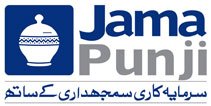Wash
Pakistan has the world’s sixth biggest population and is rapidly urbanising, which makes reaching everyone with basic services extremely challenging. Currently, 22 million people still have no choice but to drink dirty water, and more than two in five people don’t have a decent toilet. But, FFOSP in collaboration with UNICEF, are tackling these challenges, and making water, toilets and hygiene a normal part of daily life. We supporting local communities with the tools they need to claim their rights to basic services. We are showing communities the important links between health and good hygiene practices such as hand-washing, and encouraging them to build and use proper toilets. And we are working with electronic and print media to spread these messages as widely as possible.Gender Equality & Women Empowerment
Strong women makes strong communities. FFOSP believes in creating an enabling environment for women micro-entrepreneurs and is committed to creating products and services driven by client needs and demands which leverage on lessons from successful models from across the world. Almost 50 percent Pakistan’s population consists of women. However, most women have no formal skills, making this segment of the society vulnerable to injustice and discrimination. Providing women with skills and employment opportunities will help establish prosperity and economic growth.
Violence against women and girls is one of the most widespread, persistent and devastating human rights violations in the world today and remains largely unreported due to the impunity, silence, stigma and shame surrounding it. Pakistan has been ranked as the third most dangerous place in the world for women. Gender Based Violence (GBV) in Pakistan has its roots in a patriarchal social structure under which women are considered inferior to men and are often viewed as property. To raise voice against this violence, FFOSP has implemented a project with USAID for facilitation and economic rehabilitation of Gender Base violence Survivors. After seeking the required trainings, the GBV survivors were facilitated to be self-employed or be placed in formal or informal sector. This important activity was accomplished through facilitating GBV survivors while providing necessary entrepreneurial skills and creating linkages with relevant authorities.
Livelihood Enhancement & Protection (LEP)
FFOSP implemented Livelihood Enhancement & Protection project (LEP), funded by Pakistan Poverty Alleviation Fund (PPAF) in the Muzaffargarh district of Punjab province. The overall objective of the project was to enhance and sustain the livelihoods and well-being of poor and vulnerable communities in target areas through provision of assets, resources, support and marketable skills to ultra-poor households. A broader objective was to test targeted interventions in the economic sector to increase purchasing capacity of poorest households for social sector services and basic needs. The experience of FFOSP suggests that the poorest and most marginalized families within a community often tend to be excluded from the development process, including the bulk of financial services designed for poorest groups.
Considering this fact, FFOSP therefore designed a project to help develop capacities, create opportunities, reduce vulnerability to shocks, improve livelihood initiatives and strengthen people’s business operations. This objective is achieved through a community and market-driven approach where community institutions provide basic infrastructure for the intervention.


